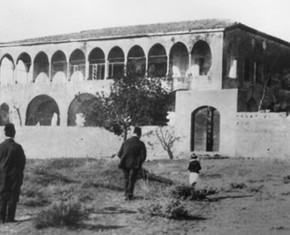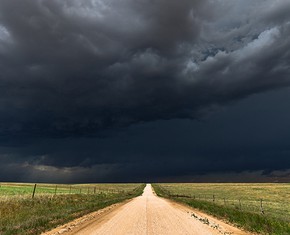The views expressed in our content reflect individual perspectives and do not represent the authoritative views of the Baha'i Faith.
It’s a deceptively simple question — Why do I believe in my religion? — but it’s also probably one of the most important questions anyone can ask. If I can’t answer it, after all, why do I really believe?
The most common response, if one were honest, is that they were raised in their religion. Like their nationality and their cultural background and their hair color, it was inherited.
While this kind of inheritance may maintain family unity, it has a hidden implication: that the person answering the question wouldn’t have been a follower during the lifetime of the founder of their Faith, because their family would have come from an older tradition.
RELATED: Progressive Revelation: All Religions as Chapters in One Book
This leads to other, more important questions: Would I have recognized Christ, Buddha, or Muhammad when they first appeared?
Is my belief based on the actual spiritual message of those great messengers, or is my belief simply a legacy of my family traditions passed down through the generations? Do I believe only because my parents and grandparents did? Did I blindly accept my family’s religious traditions without examining them?
One central question naturally follows these soul-searching ones: “How can we recognize a messenger from God?” In other words, by what criteria can we believe that would have enabled us to recognize the founders of our Faith during their lifetime?
This was, essentially, the question asked of Baha’u’llah by an uncle of the Bab, the divine messenger who brought us the Babi religion, and paved the way for the advent of Baha’u’llah and the Baha’i Faith. Baha’u’llah’s responded by revealing the foundational Baha’i book known as The Book of Certitude.
In this seminal book, Baha’u’llah wrote that “… all the Scriptures, and the mysteries thereof are condensed into this brief account.”
When we look at the questions the Bab’s uncle actually wrote, the response is quite intriguing. One of the questions asks why the Bab didn’t show the sovereignty that the Promised One was supposed to show. While the second part of the book addresses the issue of sovereignty, Baha’u’llah reframes the question as “How did the Bab show this sovereignty?”
Baha’u’llah begins by telling his questioner that the first step in any sincere search is detachment — that we must be detached from our own limited understanding of things, for if we believe that we are right and that everything must conform to our belief, then we are not open to learning. When that is the case, our search has already ended. This kind of detachment does not mean forgetting what we know — instead, it often means reexamining our interpretation of what we believe.
As soon as Baha’u’llah tells us to be detached, he then asks the uncle to “consider the past.” Knowing that the uncle is a devout Muslim, Baha’u’llah acknowledges the messengers he already recognizes — Moses, Christ, and Muhammad. He reiterates the stories of these great teachers but with a tight focus. For example, when telling the story of Noah, Baha’u’llah does not mention the flood or the ark. Instead, he describes the sufferings of that divine prophet, saying, “… the more closely you observe the denials of those who have opposed the Manifestations of the divine attributes, the firmer will be your faith in the Cause of God.”
When referring to the past messengers, Baha’u’llah draws our attention to what they have in common, for those commonalities allow us to recognize the next messenger. If we look carefully at the stories of the messengers in The Book of Certitude, we can see a familiar arc to them — they all begin with admiration for the individual divine messenger and then move on to their sufferings, which culminate in their eventual triumph. The triumphal part of the story differs from one messenger to the next, but if we focus on those differences, we tend to lose sight of what they have in common. Here, Baha’u’llah looks at the beginning of each story: how each holy messenger was admired and then how they subsequently suffered.
In other words, Baha’u’llah begins teaching the uncle of the Bab by confirming what he already knew. While there is no new information about their lives, it is presented in a startlingly new light.
In these important paragraphs, Baha’u’llah also offers a method for us to emulate: He seems to recognize that there are some points, and some insights, that may be difficult to accept. He understands that there are some ideas presented that may elicit a natural reflex in us, an “I’m right” reflex, as natural as the reflexive kicking of our leg when the doctor taps our knee with a hammer.
RELATED: Many Religions, One City of God
Every time Baha’u’llah does this in the book, he pauses. He tells the uncle to “ponder,” to “meditate,” to “reflect.” Rather than pushing the point, Baha’u’llah allows this natural reflex to occur and subside. What can we learn from this?
Whenever I stumble across one of these words — ponder, meditate, reflect — in The Book of Certitude, I now pause and ask myself about the point Baha’u’llah is asking me to consider. What is the challenging new idea Baha’u’llah presents?
Similarly, when I am talking with my friends about the Baha’i Faith, or about any issue on which we differ, I now strive to do the same thing. I know, for example, that it can be quite challenging for some of my Christian friends to hear that believing in Jesus is not enough — we also have to work to apply Christ’s teachings in our daily lives. When my Christian friends pause to consider this, though, they very naturally agree. Their initial reflex of the supreme importance of recognition subsides when they think about how it must be coupled with action.
When I feel that reflex in myself, I try to remember that it means I am encountering something new. I struggle to let that reflex subside, but I try, for it means that there is something I may learn.
When asked why we believe what we do, this reaction is very natural, for the question challenges our core beliefs. But when we encounter that question and honestly try to answer it, we are on the path to strengthening the foundation of our faith — and just like a tower, the stronger the foundation, the higher we can build.
















Comments
Sign in or create an account
Continue with Googleor